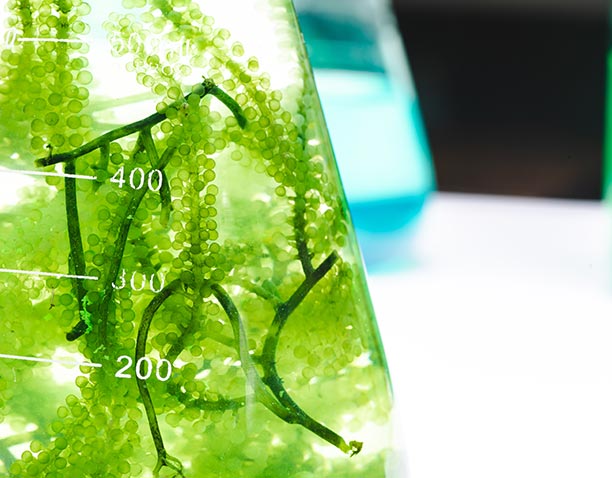Industrial Applications of Bio-based Polymers
We assist clients in adapting bio-based polymers across various industries:
Packaging materials
PLA and PBS are increasingly replacing petroleum-based plastics in disposable containers, trays, and films. These bio-based materials offer transparency, durability and are compostable under industrial conditions.
Agricultural films
Biodegradable mulching films and greenhouse covers help reduce long-term soil contamination and lower the reliance on fossil-based materials in agriculture.
Biomedical devices
Biopolymers like PLA and PHA are used in surgical sutures, implants, and controlled drug-release systems due to their biocompatibility and controlled degradation rates.
Textile fibres
Natural polymer blends and regenerated cellulose fibres offer sustainable alternatives for fabrics, helping reduce microplastic pollution and enhancing recyclability.
Automotive interior parts
Bioplastics derived from renewable sources are now used in dashboards, door panels, and seat cushions, reducing VOC emissions and contributing to lighter vehicle weights.
Construction materials
Lignin- and cellulose-reinforced composites are becoming more common in sustainable building materials, offering insulation and structural benefits while lowering embodied carbon.
3D printing filaments
PLA and modified starch-based polymers are favoured in additive manufacturing for their low warping, renewability and ease of processing.
Food-grade bioplastics
Bio-based polymers meet the strict standards required for food packaging, providing safe, durable, and recyclable solutions for consumer goods.
Need help navigating these markets? Speak to our plastic materials consultant.
How We Work With You
Our bio-based polymer synthesis service is consultative, hands-on and adaptable. Here’s what working with us looks like:
- Consultation: Define your objectives, technical constraints and desired properties.
- Feasibility: Assess availability of feedstocks and identify the best polymerisation route.
- Lab Development: Design and test polymer samples tailored to your needs.
- Scale-up Support: Advise on equipment, supply chain and quality control for commercial production.
- Regulatory Guidance: Support with REACH, FDA, EU bioplastics directives, and more.
From small startups to industrial manufacturers, we help bridge the gap between concept and implementation.
Learn more about our full range of services.






